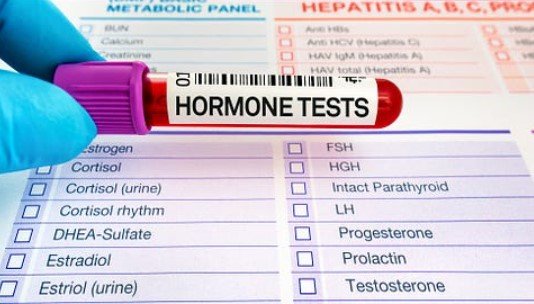How Hormone Tests Help in Diagnosing Common Health Conditions

Hormones are capable of causing an imbalance in their normal functioning. As a result, a woman may develop various symptoms and health complications. A hormone test assesses the different hormones in the body to ascertain the possible causes of the modifications. From fatigue and symptoms associated with mood swings to dramatic things, such as thyroid disorders or infertility, hormone tests are beneficial components of a better understanding of health.
What Are Hormones and Why Are They Tested?
The hormones control so many functions in the body: metabolism, growth, reproduction, and mood, for instance. When these hormones are balanced, any extra symptoms such as increased weight gain, irregular periods, or abnormal fatigue will come. A hormone test is performed to ascertain the amount of the relevant key hormone in your blood, saliva, or urine to detect any imbalances with respect to their functions. It is very beneficial to analyze conditions that would have otherwise gone without treatment because of their timely recognition and efficient treatments.
7 Common Health Conditions Diagnosed Through Hormone Tests
Through hormone tests, a doctor may confirm many indications. Some are diagnostics; thus, they boast a variety of conditions. Diagnostic examinations assure doctors to achieve hormonal imbalances as early as possible and precise treatment. Here are some of the most common health issues identified through hormone testing:
- Thyroid Disorders
Therefore, blood tests must be done to measure T3, T4, and TSH levels for the diagnosis of hypothyroidism and hyperthyroidism. The disorders produce some of the greatest and most troubling symptoms in the population, including fatigue, changes in body weight, and mood swings. These diseases, once left untreated, can bring severe complications, including cardiovascular diseases and metabolic dysfunction.
- Fertility Issues
Hormonal pregnancy tests are important for men and women as they show estrogen and progesterone deficiency and excess testosterone levels in searching for the major causes of infertility and therapy. Some examples of criteria include the evaluation of ovulation and sperm health data for IUI/IVF treatments.
- Menopause and Andropause
Hormonal tests are useful in establishing changes in estrogen, progesterone, and testosterone levels in menopausal women and andropause men. They help establish measures and treatment modalities for the control of these symptoms, such as sleep problems and libido reduction, thereby enhancing one or both people’s quality of life when going through such natural changes.
- Adrenal Gland Disorders
Determining cortisol levels is part of assessing adrenal deficiency or overactivity, mostly due to chronic stressors or diseases such as Addison’s and Cushing’s syndrome. Due to such disorders, performance could be hindered even at that energy greats, while immunity and mental health have different effects based on the psycho-neurological condition. Early diagnosis in this regard causes early entry into a management plan for these conditions.
- Growth Disorders
The hormonal test tests the growth hormone levels to diagnose cases of stunted growth in children or conditions such as gigantism. There is special treatment for a case where a deficiency of the growth hormone might be present. From the very first day of their existing condition, this measure would help children get maximum potential in adult height and, at the same time, prevent complications that may happen during their lives because of abnormal growth patterns.
- Diabetes and Insulin Resistance
Testing for insulin and other metabolic hormones helps in the predictive diagnosis of prediabetes, diabetes, or insulin resistance. This gives an avenue for early intervention. It will also, therefore, be very useful in the development of nutrition and medication schemes through which blood sugar levels can be managed to avoid later complications.
- Chronic Pain and Hormonal Imbalances
Sometimes chronic pain conditions are caused by hormonal imbalances. However, testing allows one to determine whether they need to get hormonal treatments or back pain treatments in case of mobility issues. Additionally, there are other medical conditions such as inflammation or stress, deficiency of hormones causing pain perception, etc.
Read also: How Vosita is Taking the Hassle Out of Healthcare Scheduling
5 Essential Benefits of Early Diagnosis Through Hormone Testing
Significant benefits arise from early diagnosis of hormone imbalances. Identifying such benefits will only buttress the importance of timely testing and health management initiatives.
- Timely Identification of Underlying Issues
Detecting hormone imbalances early allows an immediate intervention that may prevent the fallout and upsurge of severe health conditions. Early detection means less extensive and costly consequent treatments.
- Personalized Treatment Plans
Hormone testing allows health and wellness professionals to create individualized treatment plans based on your specific hormonal profile. This personalized method justifies and provides therapy to identify the cause of your symptoms, resulting in more effective and lasting outcomes.
- Improved Quality of Life
Hormone balancing can streamline your overall energy levels, enhance your mood, and have extensive benefits to health and wellness. When you take regular hormone tests, they help correct imbalances early, allowing you to enjoy life at a premium and achieve your personal and professional goals.
- Prevention of Complications
Testing hormones might prevent unwanted health problems such as infertility, osteoporosis, or cardiovascular problems that are increasing day by day in both men and women. It also prevents untreated conditions like diabetes or adrenal fatigue from causing complications related to them.
- Support for Chronic Condition Management
Patients suffering from any chronic ailment can benefit from hormones tests, as they can help identify aggravating factors such as obesity and support better overall care. Such treatment, together with appropriate hormonal evidence incorporated into models of care delivery, would result in more effective therapies and improved patient outcomes.
The Final Words
Now, you can do a hormone test at home. Hormone tests are among the powerful diagnostic tests that have the potential to lead to unearthing the root causes of several very common health conditions. Symptoms that are unexplained, such as chronic ailment – these tests give crucial insight into how effective therapy needs to be planned. This test also brings the stress down by ruling out the possibility of issues, either stating that an issue does exist or confirming the need for further studies.






